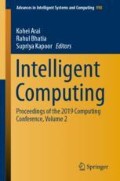Abstract
We present a protocol enabling two legitimate partners sharing an initial secret to mutually authenticate and to exchange an encryption session key. The opponent is an active Man In The Middle (MITM) with unlimited computing and storage capacities. The resistance to such an unlimited MITM is obtained through the combined use of Deep Random secrecy, introduced in former work and proven as unconditionally secure against passive opponent for key exchange, and universal hash techniques. We prove the resistance to MITM interception attacks, and show that (i) upon successful completion, the protocol leaks as few residual information as desired about the current value of the shared secret to the opponent, and (ii) that any interception attempt results into unsuccessful completion and is detectable by the legitimate partners. We also discuss implementation techniques.
Access this chapter
Tax calculation will be finalised at checkout
Purchases are for personal use only
References
Shannon, C.E.: Communication theory of secrecy systems. Bell Syst. Tech. J. 28, 656–715 (1949)
Brassard, G., Salvail, L.: Secret-key reconciliation by public discussion. In: Cryptology – Proceedings of EUROCRYPT ’93, Lecture Notes in Comput. Science, vol. 765, pp. 410–423 (1994)
Bennet, C.H., Brassard, G.: Quantum cryptography and its application to provable secure key expansion, public-key distribution and coin-tossing. In: Proceedings of the IEEE International Conference on Computers, Systems and Signal Processing, Bangalore, India, pp. 175–179, December 1984
Bennet, C.H., Brassard, G., Robert, J.-M.: Privacy amplification by public discussion. SIAM J. Comput. 17(2), 210–229 (1988)
Maurer, U.M.: Secret key agreement by public discussion from common information. IEEE Trans. Inf. Theory 39(3), 733–742 (1993)
Cachin, C., Maurer, U.M.: Unconditional security against memory-bounded adversaries. In: Proceeding of CRYPTO ’97, Lecture Notes in Computer Science, Springer (1997)
Jaynes, E.T.: Prior probabilities. IEEE Trans. Syst. Sci. Cybernet. 4(3), 227–241 (1968)
Cox, R.T.: Probability, frequency and reasonable expectation. Am. J. Phys. 17, 1–13 (1946)
de Valroger, T.: Perfect secrecy under deep random assumption. Arxiv.org (http://arxiv.org/abs/1507.08258 full version)
de Laplace, P.S.: A philosophical essay on Probabilities, Paris 1814
Wegman, M.N., Carter, L.: New hash functions and their use in authentication and set equality (1980)
Beth, T., Desmedt, Y.: Identification tokens or: solving the chess grand-master problem. In: Advances in Cryptology – CRYPTO’90 Proceedings, pp. 169–176. Springer (1991)
Author information
Authors and Affiliations
Editor information
Editors and Affiliations
Rights and permissions
Copyright information
© 2019 Springer Nature Switzerland AG
About this paper
Cite this paper
de Valroger, T. (2019). Deep Random Based Key Exchange Protocol Resisting Unlimited MITM. In: Arai, K., Bhatia, R., Kapoor, S. (eds) Intelligent Computing. CompCom 2019. Advances in Intelligent Systems and Computing, vol 998. Springer, Cham. https://doi.org/10.1007/978-3-030-22868-2_42
Download citation
DOI: https://doi.org/10.1007/978-3-030-22868-2_42
Published:
Publisher Name: Springer, Cham
Print ISBN: 978-3-030-22867-5
Online ISBN: 978-3-030-22868-2
eBook Packages: Intelligent Technologies and RoboticsIntelligent Technologies and Robotics (R0)

